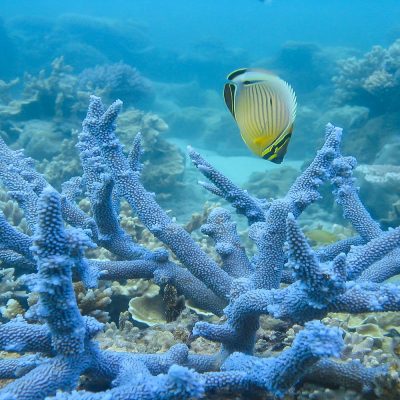Most of the evolutionary diversity of corals and fish is not currently supported by the world’s network of marine protected areas, according to a new study published by the journal Nature Communications.

Evolutionary diversity is a measure of differences in the length of the branches of evolutionary trees since species diversification.
Supporter Spotlight
Although the total number of different species in an ecosystem is usually taken as a good measure of its “health,” a measure of how closely related species are in evolutionary terms is also important. This is because closely related species are more likely to perform similar roles in the ecosystem, whereas more distinct lineages may perform unusual or complementary roles that are vital for its function.
Author David Mouillot of Université de Montpellier in France, and his colleagues quantify the extent to which evolutionary history is protected in coral reefs across the globe. They focus on 805 species of coral and 450 species of labrid fish — both of which are important components of marine biodiversity with well-characterized evolutionary histories — and calculate how much of these species’ geographic range is covered by the marine protected areas, or MPA, network. They then assess how much evolutionary history is encompassed by all the species on a shared evolutionary tree branch relative to this geographic range.
They find that, although the world’s MPA network covers 5.9 percent of the total coral reef area, this network only encompasses 1.7 percent of the total known evolutionary history of corals, while only 17.6 percent of the evolutionary history of fish is protected. This means that about 7,160 million years of the evolutionary history of corals and 3,586 million years of that of fish are not adequately protected by MPAs.
Although MPAs were originally established to conserve species diversity rather than evolutionary diversity, the authors argue that the latter is a crucial, often overlooked, component of biodiversity.
Learn More
Read the Article in Nature Communications







